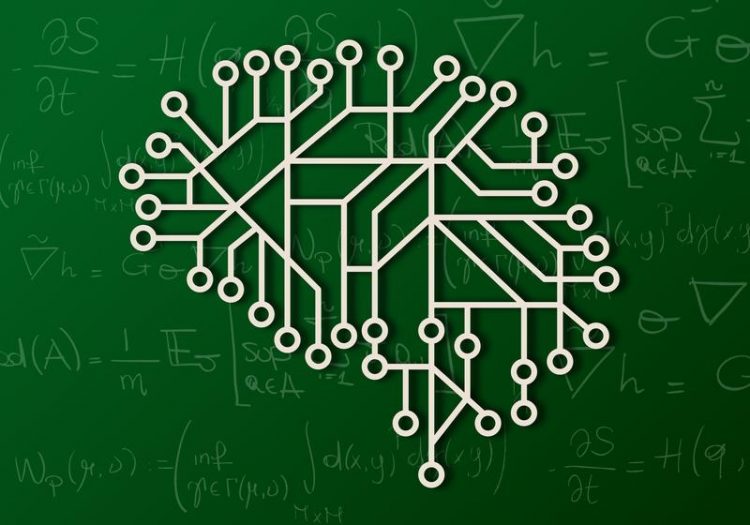Million funding for Deep Learning project in Leipzig

Mathematical models and methods and computing with neural networks form the theoretical foundations for the study of deep learning processes. © Max Planck Institute for Mathematics in the Sciences
Deep Learning is one of the most vibrant areas of contemporary machine learning and one of the most promising approaches to Artificial Intelligence. This research area drives the latest systems for image, text, and audio processing, as well as an increasing number of new technologies. The goal of this new research group is to advance on key open problems in Deep Learning, specifically those regarding the capacity, optimisation, and regularisation of the underlying algorithms.
The scientists will consolidate a theoretical basis that allows to pin down the inner workings of the present success of Deep Learning and make it more widely applicable, in particular in situations with limited data and challenging problems in reinforcement learning. The scientific approach is based on the geometry of neural networks and exploits innovative mathematics, drawing on information geometry and algebraic statistics.
Guido Montúfar studied mathematics and physics at the Technical University of Berlin and received his doctorate at the University of Leipzig. After working as a research associate at the Pennsylvania State University, he obtained a postdoc position at the Max Planck Institute for Mathematics in the Sciences.
In parallel to his recent position as research group leader he holds an Assistant Professorship at the Departments of Mathematics and Statistics at the University of California, Los Angeles, USA. With his team at UCLA, he develops mathematical tools and techniques for computation with neural networks, with diverse applications from generative modelling, optimisation, to pure mathematics.
Guido Montúfar’s work is dedicated to advancing on the most important challenges in deep learning today, with deep and direct practical relevance. Together with his team, he pursues a synergistic approach at the intersection of Mathematics, Statistics, Machine learning, merging tools from information theory, algebra, combinatorics, and geometry.
The geometric analysis of deep neural networks that Guido has been developing over the past years provides a formal approach to the design of learning systems that allows, for instance, to create sparse networks with guaranteed learning capabilities. His work on neural networks includes the analysis of distributed representations, the advantages of depth in function approximation, the geometry of graphical models with hidden variables.
This work is opening up new avenues for addressing one of the most serious bottlenecks in contemporary reinforcement learning, namely the sample complexity of these methods. This work is also facilitating the development of new optimization algorithms for learning with neural networks and new regularization techniques based on information theory.
Guido is also an active coordinator of research activities targeting interactions between mathematics and machine learning, such as the recent DALI workshop on “Theory of Deep Learning” and the upcoming AIM workshop “Boltzmann Machines” at the American Institute of Mathematics. Guido Montúfar’s team is also closely involved in the Mathematics of Data initiative at the Max Planck Institute for Mathematics in the Sciences.
ERC Starting Grants are awarded by the European Research Council to excellent junior researchers who have already achieved outstanding research results. The funding is used to set up an own working group.
Dr. Guido Montúfar
Max Planck Institute for Mathematics in the Sciences
Inselstraße 22
04103 Leipzig
Germany
guido.montufar@mis.mpg.de
http://www.math.ucla.edu/~montufar Information about the laureate Dr. Guido Montúfar:
https://erc.europa.eu/funding/starting-grants Information about the ERC Starting Grants Program
http://www.mis.mpg.de/math-of-data Information about the „Mathematics of Data“-Initiative at the Max Planck Institute for Mathematics in the Sciences
http://www.mis.mpg.de Information about the Max Planck Institute for Mathematics in the Sciences
Media Contact
All latest news from the category: Awards Funding
Newest articles

First-of-its-kind study uses remote sensing to monitor plastic debris in rivers and lakes
Remote sensing creates a cost-effective solution to monitoring plastic pollution. A first-of-its-kind study from researchers at the University of Minnesota Twin Cities shows how remote sensing can help monitor and…

Laser-based artificial neuron mimics nerve cell functions at lightning speed
With a processing speed a billion times faster than nature, chip-based laser neuron could help advance AI tasks such as pattern recognition and sequence prediction. Researchers have developed a laser-based…

Optimising the processing of plastic waste
Just one look in the yellow bin reveals a colourful jumble of different types of plastic. However, the purer and more uniform plastic waste is, the easier it is to…



